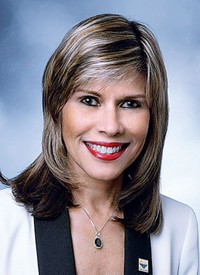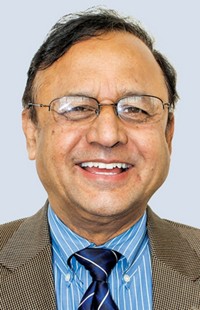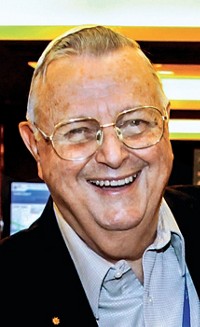Advertisement
Grab your lab coat. Let's get started
Welcome!
Welcome!
Create an account below to get 6 C&EN articles per month, receive newsletters and more - all free.
It seems this is your first time logging in online. Please enter the following information to continue.
As an ACS member you automatically get access to this site. All we need is few more details to create your reading experience.
Not you? Sign in with a different account.
Not you? Sign in with a different account.
ERROR 1
ERROR 1
ERROR 2
ERROR 2
ERROR 2
ERROR 2
ERROR 2
Password and Confirm password must match.
If you have an ACS member number, please enter it here so we can link this account to your membership. (optional)
ERROR 2
ACS values your privacy. By submitting your information, you are gaining access to C&EN and subscribing to our weekly newsletter. We use the information you provide to make your reading experience better, and we will never sell your data to third party members.
Policy
Award for Volunteer Service to ACS
January 22, 2007
| A version of this story appeared in
Volume 85, Issue 4
Sponsored by ACS
Morton Z. Hoffman, professor emeritus of chemistry at Boston University, brings "incredible energy, enthusiasm, and competence to anything he undertakes," says fellow volunteer Glenn A. Crosby, professor emeritus at Washington State University. Anyone who knows Hoffman is bound to agree.
Throughout his career, Hoffman, 71, has shown his talents as a superb organizer, a thoughtful initiator of new activities and programs, and a supremely accomplished communicator. The underlying theme of all of Hoffman's activities and actions is education. This theme permeates his service at all levels: local, regional, national, and international.
Hoffman received an A.B. degree from Hunter College of the City University of New York in 1955 and M.S. and Ph.D. degrees in chemistry from the University of Michigan in 1957 and 1960, respectively. He started volunteering with the ACS Northeastern Section in 1964 and served as its chair from 1970 to 1973. From 1993 to 1997, he was chair of the section's Education Committee; he still serves as chair of the College Education Subcommittee.
As a member of the ACS Division of Chemical Education (CHED) Program Committee, Hoffman organized symposia on radiation chemistry (1981) and inorganic photochemistry (1983) at ACS national meetings. These symposia were so successful that issues of the Journal of Chemical Education were devoted to them and have since served as primary teaching resources for these subjects.
He was reappointed to the CHED Program Committee in 1992 and served until 2004, during which time he organized and co-organized symposia at many national meetings. He also chaired that committee in 1999-2001.
Hoffman has been a member of the CHED International Activities Committee since 1993. In that capacity, he co-organized a "Chemistry in Cuba" symposium (2002) and traveled with the ACS delegation to Cuba for the International Congress of Chemistry (1998) and the Cuban Chemistry Conference (2002). The committee sponsored symposia at a number of international meetings, which he attended as a representative of the division. In 2003, he was elected to the governance sequence of CHED, serving as chair-elect (2004), chair (2005), and immediate past-chair (2006).
He has worked especially hard to make CHED, the Northeastern Section, and ACS welcoming places for high school teachers. He has been a member of the organizing committees of the Northeastern Section's Connections to Chemistry workshop programs for high school teachers since 2000 and the Younger Chemists Committee Exchange with Germany program for undergraduates and graduate students since 2001.
His work has been recognized by the Responsible Care Catalyst Award for Teaching Excellence from the American Chemistry Council (2002) and the James Flack Norris Award for Outstanding Achievement in the Teaching of Chemistry from the ACS Northeastern Section (2005).
"There is a moral obligation for me to contribute my time—my most limited, and therefore priceless, existential quality—to the betterment of the world and the human condition, which must go beyond anything I would do for financial remuneration," Hoffman says. "To be recognized by one's favorite professional organization for one's service thereto is the most generous 'thank you' one can receive."
The award address will be presented at the ChemLuminary Awards program at the ACS meeting in Boston in August.






Join the conversation
Contact the reporter
Submit a Letter to the Editor for publication
Engage with us on Twitter